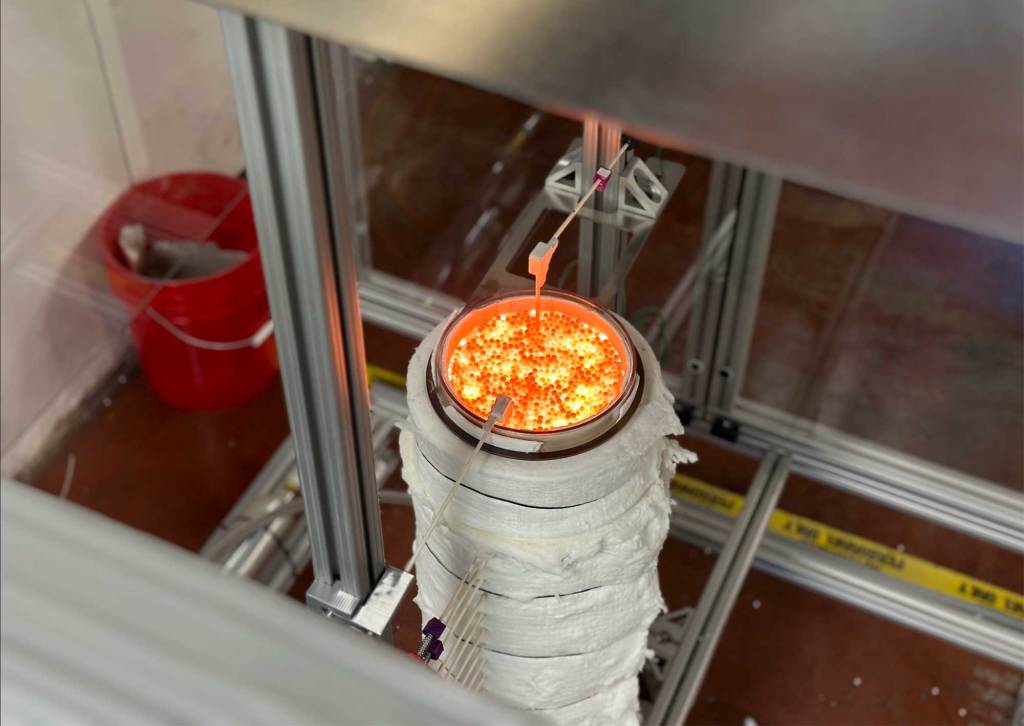For every 1,000 kilograms of cement the world produces, 600 kilograms of carbon dioxide are dumped into the atmosphere. If that doesn’t sound like a lot, consider that last year the world made about 4.2 billion metric tons of cement, an amount so large that it’s responsible for about 8% of all carbon pollution.
It’s a big problem, one which weighed on Gurinder Nagra’s mind as a graduate student at Stanford University. It wasn’t the focus of his PhD — that would be carbon capture and storage — but he couldn’t stop thinking about it. When he took a class on energy ventures three different times in two years, “every time was focused on cement,” he told TechCrunch.
It wasn’t just the pollution that bothered Nagra. “Emissions are one aspect. The other is that it’s just this overlooked, dirty industry, but it’s kind of necessary to modern civilization. It’s everywhere,” he said. Doing something in cement could have ripple effects far beyond climate change.
“The companies that control the supply of cement in the background run the world almost. Not so much as the oil industry, but they have a lot of power,” he said. “It costs a billion dollars to build a new plant. If a company decides to build a plant in a developing economy or a developing country, that company has control over the destiny of the trajectory of that developing economy.”
So, after finishing his degree in 2020, Nagra founded Furno. The goal was straightforward but ambitious: upend the cement industry.
Many developing countries aren’t able to finance a new plant or entice a company to build one, so they end up importing cement, paying dearly in the process. “You find that, in a lot of developing economies, they actually pay more for cement than in developed economies, sometimes three to four times the market price.”
Furno’s answer has been to develop a cement kiln that’s smaller, more efficient and more flexible than the massive ones favored by industry today. Each unit may produce less than today’s industry-standard designs, but it promises to be cheaper to build and use less energy to run.
Furno’s smaller kilns fly in the face of trends in the cement industry today, which has been chasing ever-larger equipment. Large rotary kilns can squeeze operating costs, though in the process, new plants have grown so large that each one is essentially a bespoke installation that incurs large labor costs to build. By building smaller kilns, Furno is hoping to lower capital expenditures through mass production and lower operating expenses through energy efficiency.
Here’s how: Portland cement, the most commonly used type, is produced by heating calcium containing minerals, usually from limestone. Those minerals are sent through the kiln, where they’re heated to more than 1,110 degrees F (600 degrees C), almost always using fossil fuels. The process of calcination, as it’s known, produces lime (calcium oxide) and carbon dioxide. There are other steps that occur at a modern cement plant, but that’s the most important one. Raw materials enter one end of the kiln, which lies horizontally, and are pushed past an intense flame to the other end, where they emerge as clinker.
Kilns today are not very efficient. A study of one in China showed that only about 30% of the heat in the kiln powered the calcination reaction; the rest was lost. “If you’re standing 40 feet away from a kiln, you can feel a heat dissipating out on the walls of the unit,” Nagra said.
Furno’s kiln, on the other hand, is far more efficient, reducing emissions from fossil fuels by 70% or more. It accomplishes that by turning the kiln vertical, filling it with ingredients that are ground to prescribed dimensions, and then seeping through it a combustive gas (natural gas, biogas or hydrogen) and setting it ablaze. By varying the amount of gas and oxygen flowing through the column, Furno is able to control where the flame occurs inside, ensuring that more of the heat powers the calcination process instead of escaping the kiln. Less fuel means less pollution, and carbon capture can help reduce emissions further. Raw material continuously flows into the top of the kiln, and clinker drops out the bottom.
What’s more, because the flame front inside the kiln can be more precisely controlled, the company has a path toward using recycled cement from old concrete, Nagra said. Because the recycled cement has already been calcined, the kiln wouldn’t need to use as much fuel. And because Furno’s kilns are smaller, they could allow cement to be remade right on a construction site.
That approach has helped Furno raise a $6.5 million seed round, TechCrunch has exclusively learned. The round was led by Energy Capital Ventures with participation by Cantos, Neotribe and O’Shaughnessy Ventures.
Already, Furno has captured the attention of ready-mix concrete companies, which have to buy cement from vertically integrated companies. “They have to buy cement from their competition, which doesn’t really make for a very fair market.” Modular kilns offer them the chance to gain some control over their own fates.
Furno’s focus on kilns and the software that controls them sets them apart from many of their competitors, which instead focus on changing the chemical reaction itself. By improving the kiln and leaving the rest largely alone, Furno might find it easier to sell to an industry that’s not accustomed to change.































Comment